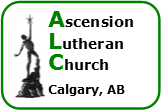Epiphany
Matthew 2:1-12
[1] In the time of King Herod, after Jesus was born in Bethlehem of Judea, wise men from the East came to Jerusalem, [2] asking, “Where is the child who has been born king of the Jews? For we observed his star at its rising, and have come to pay him homage.” [3] When King Herod heard this, he was frightened, and all Jerusalem with him; [4] and calling together all the chief priests and scribes of the people, he inquired of them where the Messiah was to be born. [5] They told him, “In Bethlehem of Judea; for so it has been written by the prophet:
[6] ‘And you, Bethlehem, in the land of Judah, are by no means least among the rulers of Judah; for from you shall come a ruler who is to shepherd my people Israel.’ ”
[7] Then Herod secretly called for the wise men and learned from them the exact time when the star had appeared. [8] Then he sent them to Bethlehem, saying, “Go and search diligently for the child; and when you have found him, bring me word so that I may also go and pay him homage.” [9] When they had heard the king, they set out; and there, ahead of them, went the star that they had seen at its rising, until it stopped over the place where the child was. [10] When they saw that the star had stopped, they were overwhelmed with joy. [11] On entering the house, they saw the child with Mary his mother; and they knelt down and paid him homage. Then, opening their treasure chests, they offered him gifts of gold, frankincense, and myrrh. [12] And having been warned in a dream not to return to Herod, they left for their own country by another road.
The feast of the Epiphany comes 13 days after Christmas. It commemorates the visit of the wisemen to the infant Jesus, when they paid him homage—which was his revelation to the Gentiles as the Son of God.
This is one of those events we are so familiar with that it may have lost some of its power. The very fact the wise men even saw the star is worth noting—that they were paying that close of attention to the skies to see the star and then to recognize its significance, considering they weren’t Jews, and to be honest Palestine at that point in history was not a place of much significance.
Then the distance they travelled—it’s believed they came from modern day Iraq—which means a journey of hundreds of kilometres, mostly at night (following a star kind of necessitates night travel), with all the attendant challenges and dangers such as bad roads, weather and bandits.
Yet they made the trek, laden with their precious gifts of gold, frankincense (a rare dried tree resin burned for incense) and myrrh (another rare tree resin but in an oil form, used as a perfume).
Further, having been warned about Herod in a dream, they head home by another road.
There were so many “good” and “logical” reasons for the wise men to stay where they were, but instead they followed God’s leading. Something for us to think about as we begin a new year—and chances are we aren’t being asked to follow a star across deserted wilderness.
(As an aside, while we often talk about “the three wise men” Scripture never says how many there were, simply that there were three gifts).
